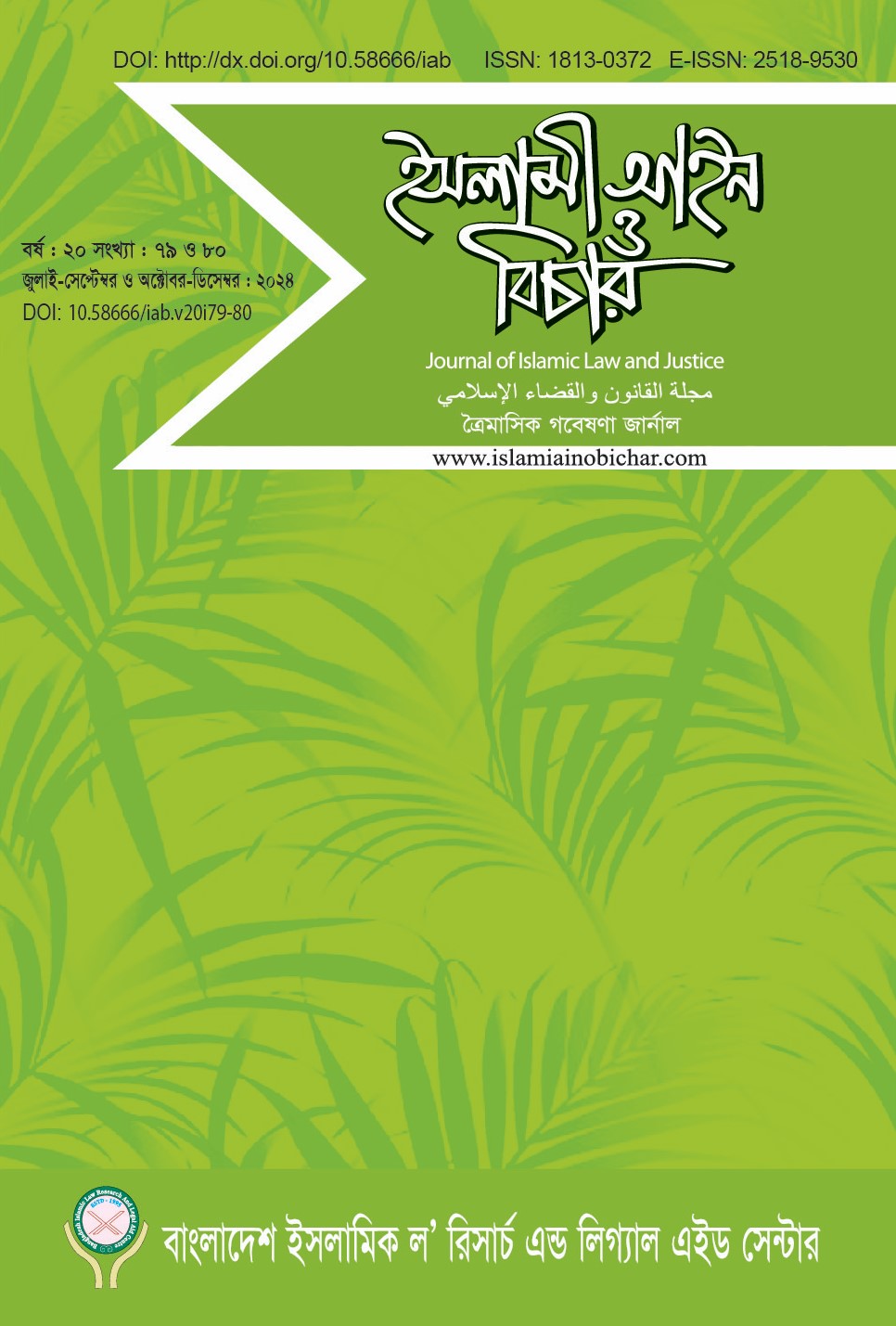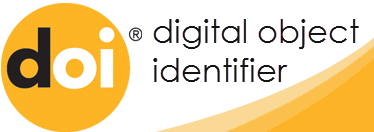দরিদ্রতা হ্রাসে ‘সেন্টার ফর যাকাত ম্যানেজমেন্ট’ এর কার্যক্রম: একটি পর্যালোচনা|The Activities of the ‘Center for Zakat Management’ in Reducing Poverty: A Review
DOI:
https://doi.org/10.58666/iab.v20i79-80.280Keywords:
zakat, poverty, niṣāb, management, institution, যাকাত, দরিদ্রতা, নিসাব, ম্যানেজমেন্ট, প্রতিষ্ঠানAbstract
Poverty signifies the inability to meet the minimum requirements of life’s necessities with what one possesses. Although many strategies have been adopted in the modern world to reduce poverty, in reality poverty is increasing day by day. Zakat management ordained by Allah (SWT) can be considered as one of the methods to reduce the poverty. In order to prove that Zakat has been made obligatory to reduce the gap between the rich and the poor and to make the marginalized population economically self-sufficient it is essential to follow the appropriate method in the management of collection and distribution of Zakat. In the contemporary landscape of Bangladesh, the activities and methods adopted by the “Center for Zakat Management” can be presented as a model. For this, the research work in question has been arranged with the aim of providing guidelines for reducing poverty through giving and receiving Zakat in the light of the basic teachings of Islam as well as of modern management studies. Qualitative method has been followed in this research paper. The article in question has substantiated that if Zakat is paid through government, non-governmental and various institutions and by individuals following the proper methods, it may have the potential to reduce poverty in society. It is expected that this will eventually play a significant role in building a balanced society and achieving the SDG goals adopted by the government.
সারসংক্ষেপ : দরিদ্রতা হলো নিজের কাছে যা আছে তা দিয়ে জীবনের আবশ্যকীয় জিনিসের ন্যূনতম চাহিদা মিটাতে সক্ষম না হওয়া। দরিদ্রতা হ্রাসকরণে আধুনিক বিশ্বে অনেক কৌশল গ্রহণ করা হলেও বাস্তবে দরিদ্রতা দিন দিন বেড়েই চলছে। আল্লাহ প্রদত্ত যাকাত ব্যবস্থাপনা এ দরিদ্রতা নিরসনের জন্য অন্যতম পন্থা হিসেবে বিবেচিত হতে পারে। যাকাত যে ধনী-গরীবের ব্যবধান কমানো এবং প্রান্তিক জনগোষ্ঠীকে অর্থনৈতিকভাবে স্বাবলম্বী করার জন্যই ফরয করা হয়েছে তা বাস্তবে প্রমাণিত হওয়ার জন্য যাকাত আদায় ও বণ্টন ব্যবস্থাপনায় সঠিক পদ্ধতি অনুসরণ করা প্রয়োজন। এ ক্ষেত্রে “সেন্টার ফর যাকাত ম্যানেজমেন্ট” এর কার্যক্রম ও পদ্ধতিকে মডেল হিসেবে উপস্থাপন করা যায়। এজন্য ইসলামের মৌলিক অনুশাসনের আলোকে এবং আধুনিক ব্যবস্থাপনা বিদ্যার নিরিখে যাকাত প্রদান ও গ্রহণের মাধ্যমে দরিদ্রতা হ্রাসকরণের দিক নির্দেশনা প্রদানের উদ্দেশ্যেকে সামনে রেখেই আলোচ্য গবেষণা কর্মটি সাজানো হয়েছে। এ গবেষণা প্রবন্ধটি রচনার ক্ষেত্রে গুণগত পদ্ধতি অনুসরণ করা হয়েছে। আলোচ্য প্রবন্ধ থেকে প্রমাণিত হয়েছে যে, সরকারি, বে-সরকারি ও বিভিন্ন প্রতিষ্ঠানের মাধ্যমে এবং ব্যক্তি উদ্যোগে সঠিক পদ্ধতি অনুসরণ করে যাকাত প্রদান করলে সমাজ থেকে দরিদ্রতা হ্রাস করা সম্ভব হতে পারে।এতে করে ভারসাম্যপূর্ণ সমাজ গঠন ও সরকারের গৃহীত এসডিজির লক্ষ্য মাত্রা অর্জনে ভূমিকা রাখতে সক্ষম হবে।
References
al-Qurʼān al-Karīm
al-Bukhārī, Abū ῾Abd Allāh Muḥammad Ibn Ismā῾īl. 1422H. Ṣaḥīḥ al-Bukhārī. Edited by: Muḥammad Zuhair Ibn Nāṣir al-Nāṣir. Beirut: Dār Ṭawq al-Najāh
al-Jazīrī, ʻAbd al-Raḥmān Ibn Muḥammad. 2003. al-Fiqh ʻAlā al-Madhāhib al-ʻArbaʻah. Beirut: Dār al-Kutub al-ʻIlmiyyah
al-Kāsānī, ʻAlā al-Dīn Abū Bakr Ibn Masʻūd Ibn Aḥmad. 1986. Badāiʻu al-Ṣanāiʻ Fī Tartīb al-Sharāiʻ. Beirut: Dār al-Kutub al-ʻIlmiyyah
al-Mausū'ah Al-Fiqhiyah Al-Kuwaitiyah. 1427H. Kuwait: Ministry of Awqaf and Islamic Affairs.
al-Qarḍāwī, Yūsuf. 1973. Fiqh al-Zakāt. Beirut: Muassasah al-Risālah
Ibn Ḥajar, Abū al-Faḍl Aḥmad Ibn ʻAlī al-ʻAsqalānī. 1371H. Fatḥ al-Bārī Sharḥ Ṣaḥīḥ al-Bukhārī. Cairo: Dār al-matbaʻ al-Slafiyyah
Ibn Qudāmah, Muwaffaq al-Dīn ʻAbd Allāh Ibn Aḥmad. 1985. al-Mughnī. Beirut: Dār Iḥyā al-Turāth al-ʻArabī
Ayub, Miah Mohammad. 2023. Zakat Bebosthapona O Daridro Bimoucon Kowshol. Dhaka: Center For Zakat Management
-2024. Zakat bonchito manuser odikar. Dhaka: Center For Zakat Management
al-Ghazālī, Abū Ḥāmid Muḥammad Ibn Muḥammad al-Ṭūsī. Nd. ᾿Iḥyā al-ʻUlūm al-Dīn. Berut: Dār al-Maʻarifah
al-Māwardī, Abū al-Ḥasan ̔Alī Ibn Muḥammd. 1999. al-Ḥāwī al-Kabīr. Edited by: ̔Alī Muḥammad & ̔Ᾱdil Aḥmad. Beirut: Dār al-Kutub al-̔Ilmiyyah
Banglapedia. N.d. “দারিদ্র্য.” Accessed January 19, 2025. https://bn.banglapedia.org/index.php?title=দারিদ্র্য
Ḥamawī, Ṣubḥī. 2000. al-Munzid Fī al-lughah al-ʻArabiyyah al-Muʻāṣir. Beirut: Dār al-Mashriq.
Hossain, Belayet. 2021. “Zakat Nite 40 bachore pododolit hoye nihoto 300 jon” Jugantor, May 21. Accessed Mar. 11, 2025. https://www.jugantor.com/opinion/420671
Rabbani, Muhammad Ruhul Amin, and Muhiuddin Qasemi. 2021. Adhunik Prekhapote Zaskater Bidhan. Dhaka: Bangladesh Islami Law Research & Ligal Aid Centre
Rahman, Mohammad Hamidur and Abul Kalam Mohammad Obaidullah. 2021. ʻʻBangladeshe Zakat Bebosthapona: Ekti Porjalocona᾿᾿ Islami Ain O Bichar, 17(66), 133-162
World Bank. 2024. The Poverty, Prosperity, and Planet Report 2024: Overview. Washington, DC: The World Bank. https://www.worldbank.org/en/publication/poverty-prosperity-and-planet.
Downloads
Published
Issue
Section
License
Copyright (c) 2025 Guyal Mohammad Giaul Hoque (Foyejee)

This work is licensed under a Creative Commons Attribution 4.0 International License.





